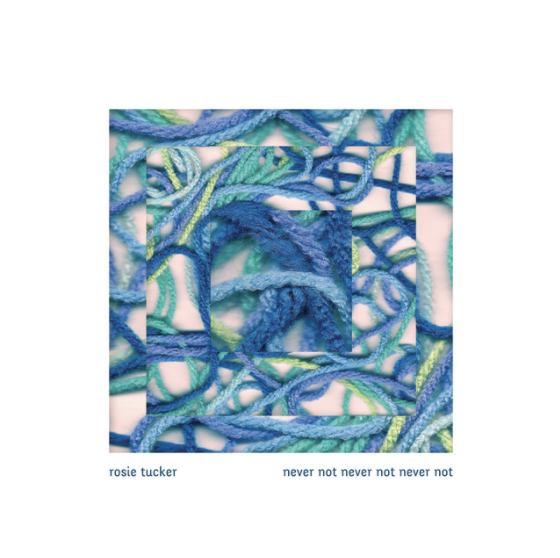A CONVERSATION WITH ROSIE TUCKER
“I'm not a huge fan of the struggle in the art; if I am trying to write something and it turns out to be too hard, I tend to just stop and let that idea go, and so I think that a lot of the songs that made it to record are songs that came with a lot of ease and enjoyment. The hard part is in showing up day in and day out, and coming up with a whole bunch of stuff that then I throw away. But everything that makes it to tape is stuff that I love.”
Rosie Tucker’s emotionally honest music is nothing short of an indie pop masterpiece, and the love that they have for their music weaves it all together. The 26-year-old singer/songwriter has released two studio albums – Lowlight in 2015 and Never Not Never Not Never Not in 2019 – with a third on the way. Their first album, “Lowlight,” is, simply put, “a document of some songs,” while the second is an exploration in more sophisticated songwriting and producing with a band. Tucker sources inspiration from artists like Anais Mitchell, Xenia Rubinos, and Juana Molina to “cultivate a particularly unique voice that can kind of move around within a genre,” they explain. “I've heard I have a twang,” they add, smiling.
Tucker’s music finds itself, sonically and lyrically, somewhere in the middle of a spectrum between Soccer Mommy and Alanis Morrissette’s earlier work. Their songs’ vocals are at once raw and sophisticated, complemented beautifully by emotionally honest lyrics. When asked why they write music, Tucker says, simply, “I think that I do not know how not to write music.” Their real love, however, is touring:
I love to perform. I think that that's a version of myself that I really enjoy stepping into. The circadian rhythms of touring agree with me; I like sleeping in a different place every night, I love to look out the window … you get to know people in such a funny, intense way because of the proximity.
Tucker’s most-streamed track – and my personal favorite – is “Gay Bar,” a narrative tune whose lilting melodies perfectly encapsulate the atmosphere of the “divey cowboy disco bar” that they write about. The song was originally created last-minute for a songwriting class that Tucker had the day after going to a friend’s birthday at, unsurprisingly, a gay bar. Hungover, they threw the lyrics together, not knowing that the song would become one of their most recognizable tracks. After workshopping it with their producer Wolfy during the production of their second studio album Never Not Never Not Never Not, the song finally came to be what it is today.
The swaying of your braids
Gave impression of a halo
But saying so would make me trite
Well I think I coulda stayed
For forever in the disco
Dancing by the fractured light
The song’s outro is quite unlike any other; the last minute or so is a distorted sample from an interview with one-hit-country-wonder Dusty Springfield, which is sonically unexpected but not at all out of place. Tucker explains, “I was just scuttling around YouTube and found this interview with her… I thought that was so interesting: this woman who had been blacklisted and was like ‘well, I'm throwing in my luck with the gays and it doesn't matter if I'm not famous because ‘fuck you.’” They continue, “I just kind of took that audio and distorted it and sampled my own song and made something woozy and big.”
This outro makes a lot of sense when Tucker tells me about what inspires them most in creating music. They explain, “I think that I get a lot of inspiration from being surprised in my very ordinary life… surprise is such a crazy emotion because you can’t manufacture it.” One of their favorite songwriting experiences was in the early stages of “Pablo Neruda,” which they wrote while staying under their friends’ kitchen table at their tiny apartment in Red Hook. They later rediscovered and revamped it, and it now sits as the last track on Never Not Never Not Never Not.
Tucker is currently working on their third studio album and explains that they’re holding out hope for a post-pandemic musical world that at least somewhat resembles that which we once lived in: “my dream is to be able to make music in a room with the people who I love.” They continue, “Obviously, I would love to tour more. I would love to just continue putting out music forever; I think that's always going to be kind of my guiding star no matter what is happening with my career.” For now, though, they hope for the same thing that many of us do: “safety and health for my friends, and being able to touch them: that's kind of the dream.”
You can connect with Rosie Tucker on instagram @lilspoonerism and listen to their recent release “Habanero” on Spotify!
photos courtesy of Rosie Tucker




